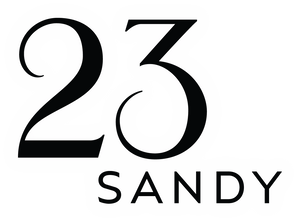| Title | Shelter, Chapbook |
| Artist / Creator | Poppy Dully |
| Artist's Nationality | United States |
| Place of Publication | Portland, Oregon |
| Publication Date | 2014 |
| Subject | Homeless |
| Process / Technique | Text: inkjet. Images:monotypes and stencil |
| Structure / Binding | Drumleaf binding |
| Medium / Materials | Oil based ink |
| Paper Stock | Arches 88, BFK Rives, Masa paper, mat board |
| Number of Pages | 8 pages |
| Dimensions (WxHxD) | 7 x 9.75 x .75 inches. Extends out to 72 inches |
| Edition Size | Variable edition of 2. Part of a series |
| Signed & Numbered | Yes |
During one of the coldest weeks of the year, I thought about the people in my community who are without permanent housing, who live on the street, camp in the woods, sleep in their cars, or share a floor or couch. I read an interview with Susan Emmons, director of the Northwest Pilot Project, and Jasmine Rockow in Street Roots News, November 27, 2013. I talked with Martha Gies who was a relocation specialist for over 20 years about the homeless in Portland. I found related imagery and photographed camps on the streets. I researched the organizations and affordable housing that are working in my community. And, I learned that most homelessness could be solved with the concerted efforts of community groups, public support and private development. I created these two books following the tradition of chapbooks, sturdier than a pamphlet, but more accessible than a hardbound book.
Artist Bio
Artist Statement Poppy Dully’s interest in combining monotypes and book pages into altered books started from four sources: painting mentor Leigh Hyams’ pen and ink artist’s books; William Kentridge’s films and drawings on book pages; the films of French film director Agnes Varda; and a long ago college art assignment to study film for compositional references. When Poppy creates an altered book with monotypes she looks for a book that will relate in its size, format, and text with the film images. With a vintage set of psychology textbooks, Poppy began her experiment with altered books. Using a digital camera, she photographs scenes from the film that seem most eventful. From these photos, she selects 8 to 10 that can tell the story visually. These photos are her source material for the monotypes which she creates by drawing on the plate and then rolling and wiping off oil based ink on the reverse side of plexi-glass plates before printing on the book pages that she has separated from the book. She backs the dried monotypes onto accordion pages that she reassembles in the book’s original cover. Poppy continues to explore the relationship of storytelling in film and books in her altered books. Sometimes it is the discovery of a second hand book that connects her to a film and other times it is the moving images of the film that connects her to a book. Artist Biography Poppy Dully (b.1947, San Francisco, CA) is a Portland, Oregon painter, printmaker, and book artist. She works in acrylics, oil, pen, and ink on a variety of surfaces. She studied design and cultural anthropology as an undergraduate at University of California, Berkeley, received a Masters in Public Health from University of California Los Angeles and worked for over 20 years in fundraising and non profit management in Portland. She has shown her paintings and prints around the Northwest since 1998. Poppy’s altered book with monotypes, After Cleo, 5 to 7, was exhibited in the College Book Art Association nationally juried show at the 23 Sandy Gallery in December 2009.



